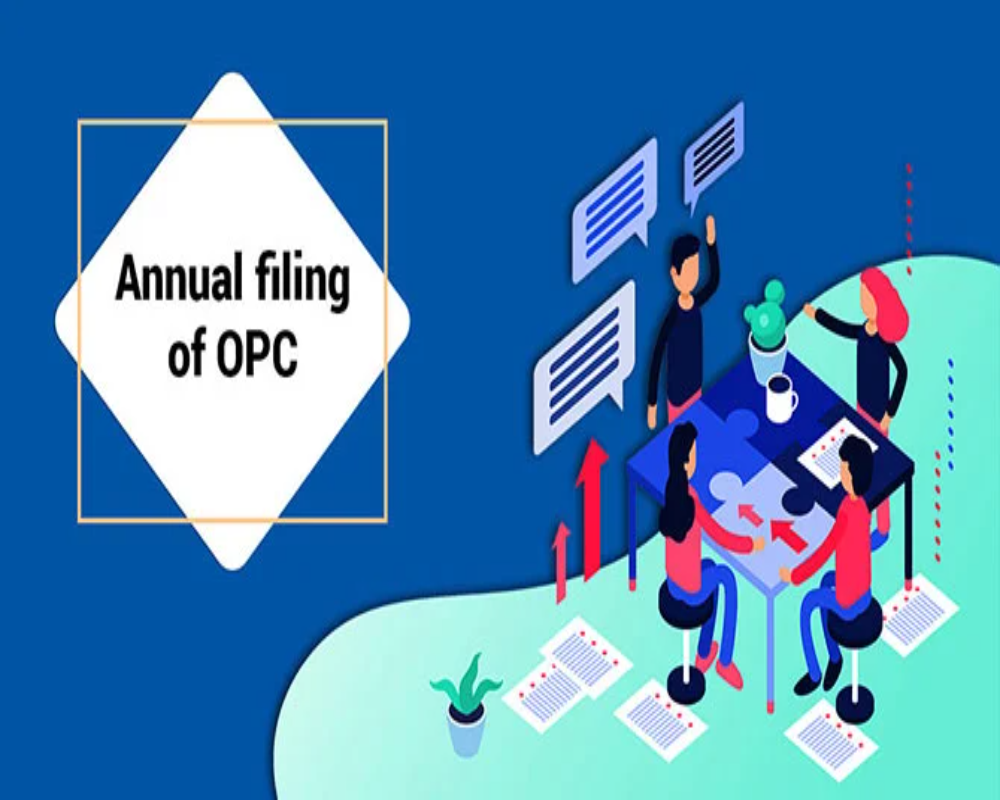Introduction
A One Person Company (OPC) is a simplified form of a private limited company designed for individual entrepreneurs, offering limited liability and a formal corporate structure. While OPCs enjoy certain exemptions and reduced compliance burdens compared to multi-member companies, they are still required to meet specific annual filing obligations under the Companies Act, 2013. These filings ensure regulatory transparency, proper financial reporting, and continued legal recognition. This article provides a detailed description of the key annual filing norms applicable to OPCs in India.
Filing of Financial Statements – Form AOC-4
Every OPC is required to file its financial statements annually with the Registrar of Companies (RoC) using Form AOC-4. This includes the balance sheet, profit and loss account, auditor’s report, and board report. The form must be filed within 180 days from the end of the financial year. For example, if the financial year ends on March 31, the deadline would be September 27 of the same year. Timely filing ensures compliance and protects the company from penalties.
Filing of Annual Return – Form MGT-7A
OPCs must also file their annual return using Form MGT-7A, which is a simplified version of the standard MGT-7 used for other companies. This return contains details about the company’s structure, registered office, shareholding, and other general information. The due date for filing MGT-7A is within 60 days from the date of the Annual General Meeting (AGM). Since OPCs are exempt from holding AGMs, the return must be filed within 60 days from the end of the financial year.
Income Tax Return Filing
Apart from MCA filings, OPCs must file their Income Tax Return (ITR) with the Income Tax Department using Form ITR-6. The deadline is generally October 31 of the assessment year if a tax audit is not applicable, or September 30 if the company is subject to audit. Filing of ITR is mandatory regardless of whether the company is earning profits or incurring losses.
Statutory Audit Compliance
Even though an OPC may have a low turnover, it is still required to get its accounts audited by a Chartered Accountant. The auditor’s report must accompany the financial statements submitted in Form AOC-4. Failure to conduct an audit may lead to serious compliance issues and penalties under the Companies Act.
Maintenance of Statutory Registers and Records
While not a direct filing obligation, OPCs are expected to maintain proper records including the register of members, register of loans and contracts, and minutes of board meetings. These records form the basis of annual filings and must be updated regularly to ensure accurate reporting to authorities.
Event-Based Filings
In addition to annual filings, OPCs must also file forms for specific corporate actions such as appointment or resignation of directors (DIR-12), change of registered office (INC-22), or alteration of capital (SH-7). These event-based filings must be made within the prescribed time limits to maintain regulatory compliance throughout the year.
Late Filing and Penalties
Failure to comply with the annual filing requirements leads to monetary penalties and additional fees. The company may be liable to pay ₹100 per day for each defaulting form, with no upper cap on the penalty amount. Continued non-compliance can also lead to legal action, disqualification of the director, or even the striking off of the company from the RoC register.
Exemption from Annual General Meeting (AGM)
Unlike other companies, an OPC is exempt from holding an AGM. This is one of the key relaxations offered under the Companies Act, which simplifies compliance. However, this exemption does not absolve the company from filing its annual return and financial statements by the prescribed deadlines.
Conclusion
Annual filing compliance is an essential aspect of managing a One Person Company. Despite its simplified structure, an OPC is a corporate entity and must adhere to regulatory requirements concerning financial disclosures, tax returns, and record maintenance. Timely and accurate filings help preserve the company’s legal standing, build credibility with stakeholders, and avoid penalties. For entrepreneurs managing an OPC, understanding and executing these filing obligations is a vital responsibility that supports the long-term success and integrity of the business.
Hashtags
#OPC #OnePersonCompany #AnnualFiling #CompanyCompliance #BusinessRegulations #StartupIndia #Entrepreneurship #LegalRequirements #CompanySecretary #FilingNorms #BusinessDocumentation #CorporateGovernance #TaxFiling #BusinessLaw #SmallBusiness #FinancialReporting #IndiaBusiness #StartupCompliance #BusinessGrowth #EntrepreneurTips


0 Comments